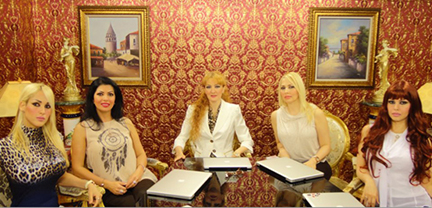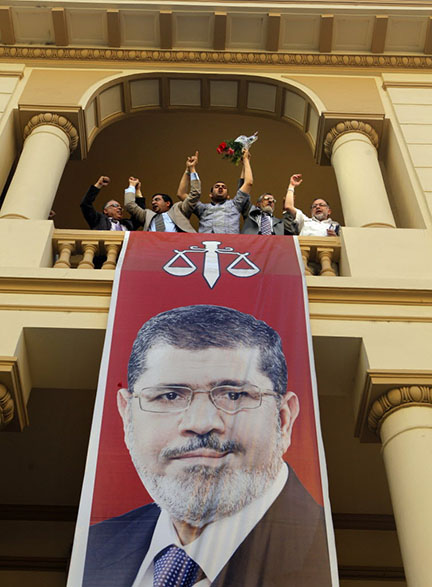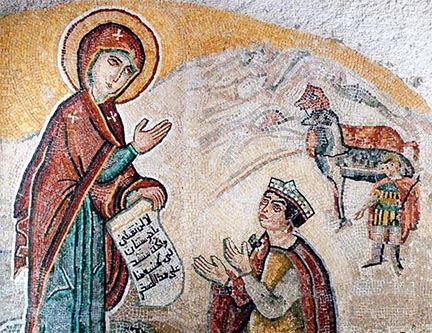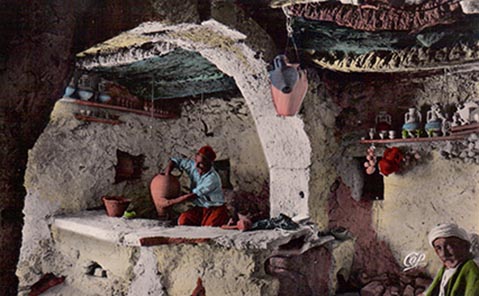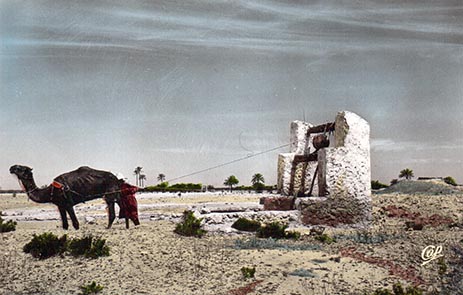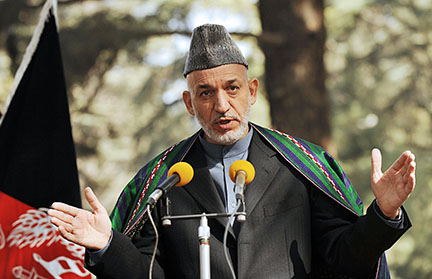
Afghan President Karzai explaining how large a bag he wants his CIA cash delivered in
Following the “revelation” that the CIA has been dropping off bags of cash to Afghan’s President Karzai, perhaps its acronym should also stand for Covert Insurance Allowance. What better way to spread democracy and freedom-loving among the Afghan people than to buy allegiance with greenbacks. After all, if Karzai is not supplied with freshly minted American dollars, how can he get the warlords to side with him. Let’s face it, the Taliban have stockpiled the opium, so Karzai needs some source of income for his fragile economy. As bribed supporters of American liberation, we can be assured that these warlords would never use any of that under-the-table funding to buy opium from the Taliban.
Many Americans are shocked that the CIA would provide clandestine aid to a foreign president who is pulled out on the kilim in public to be chided over Afghan’s notorious corruption. But rest assured that President Karzai gives America receipts for every dollar. These receipts are actually recycled and used as toilet paper back in CIA headquarters, resulting in a significant savings for the agency. The CIA can now cover its own shit without having to buy truckloads of Scots Tissues, much to the consternation of the Koch Brothers. Now that the shit has hit the fan, so to speak, more money will need to be provided to Karzai so that more receipts can make their way back to headquarters. There is plenty of cash available, despite sequestration, since so many of the other dictators that were getting genuine made-in-America bribes on the sly are gone. Continue reading CIA, C.O.D., LOL
